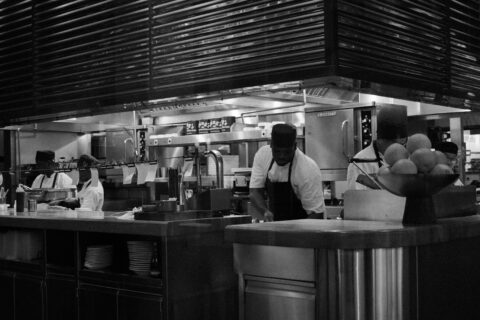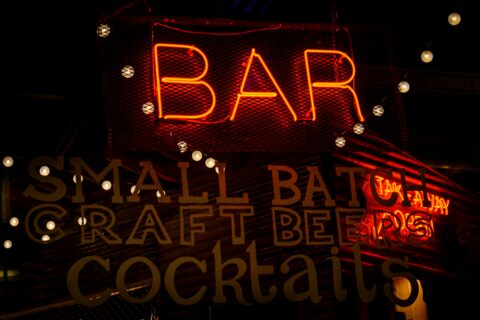We all like a drink on a Friday after work. Going for a drink is one of the ways we catch up with mates or celebrate a special moment. However, alcohol-related incidents are a major public health issue in Australia. Whether that is injuries caused by being impaired by alcohol, or developing chronic conditions from alcohol consumption, or premature death.
A key person in helping prevent these issues and incidents are hospitality workers.
In Australia, all workers in businesses that are involved in the sale or service of alcohol are required to take a responsible service of alcohol (RSA) course and hold an RSA certificate.
To some people, the RSA may seem like a mere formality, but it can actually have a big impact on preventing alcohol-related incidents.
What is an RSA Certificate?
An RSA Certificate is a qualification required for anyone involved in serving or supplying alcohol in Australia. The training will provide individuals with the knowledge and skills to serve alcohol responsibly, ensuring compliance with legal regulations and promoting safe consumption practices.
What are Alcohol-related Incidents?
An alcohol-related incident can be anything that happens when alcohol is involved but generally, we are talking about heavily negative incidents rather than sending an ex a text. These incidents can include falling over, alcohol poisoning, crashing a car, violence, and can include chronic conditions caused by ongoing excessive alcohol consumption.
Some of the stats are pretty sobering:
Between 2021 and 2022, there was a 9.1 per cent increase in the rate of alcohol-induced deaths in Australia.
In 2019–20, alcohol-related injury hospitalisations accounted for 5.7% of all injury hospitalisations and 14% of all injury deaths.
According to the Australian Bureau of Statistics, more than one in four (26.8%) adults exceeded the Australian Adult Alcohol Guideline in 2022.
Why responsible service of alcohol matters.
Regular over-consumption of alcohol dramatically increases the likelihood of a person being involved in an alcohol-related incident. It also increases the chances of a person developing a chronic health condition. The age that someone starts drinking also is a big factor in alcoholism risk. A study on excessive alcohol consumption showed, of those who began drinking before age 14, 47% experienced dependence at some point, compared to 9% of those who began drinking after they turned 21.
This is why responsible service of alcohol matters, it can:
How RSA training can help with incidents.
Having an RSA certificate is about more than just hitting the legal requirements. The course will teach key techniques to help safeguard the wellbeing of customers and the community. It does this in three areas:
Identifying Intoxication
Identifying intoxication is the first step in helping to prevent alcohol-related incidents. Once you recognise that someone is intoxicated, you’ll be able to assess the situation and decide the best course of action.
There are plenty of signs of intoxication but a few of the more common ones are:
-
Stumbling or inability to walk in a straight line
-
Confusion or extreme tiredness
-
Talking loudly or talking a lot
-
Someone acting extremely happy or aggressively
-
Slurred speech or other speech difficulties
-
Vomiting or nausea
If someone is displaying one, or more, of these signs, an RSA course will also help you learn what to do and that may start with refusing service.
Refusing Service
Hospitality staff will regularly need to refuse service to patrons. Whether the person is intoxicated or underage, the staff member will need to identify when they need to refuse service and how to do it effectively.
RSA training will help staff with techniques to refuse service in a way that isn’t confrontational but is instead, firm but with clear communication. In the training, staff will also learn conflict resolution skills to help with this.
Promote Safer Drinking Practices
The best defence against alcohol-related incidents is prevention and RSA training will help staff learn how to promote safer drinking practices in a venue.
Slowing down alcohol intake and helping patrons stay hydrated by drinking water is an important practice. Drinking water between drinks will slow a person from drinking too much, plus staying hydrated will help them feel less hungover the next morning.
Encourage patrons to eat before or during their night. Food prevents alcohol from entering the bloodstream too quickly and will help prevent patrons getting intoxicated quickly.
Finally, knowing when to encourage a patron to call a taxi rather than taking the risk of driving is important as well.
A server’s job goes beyond just serving drinks, they are a key worker in the prevention of alcohol-related harm and RSA training is important for helping them feel empowered and confident in this role.
Get RSA certified today.




